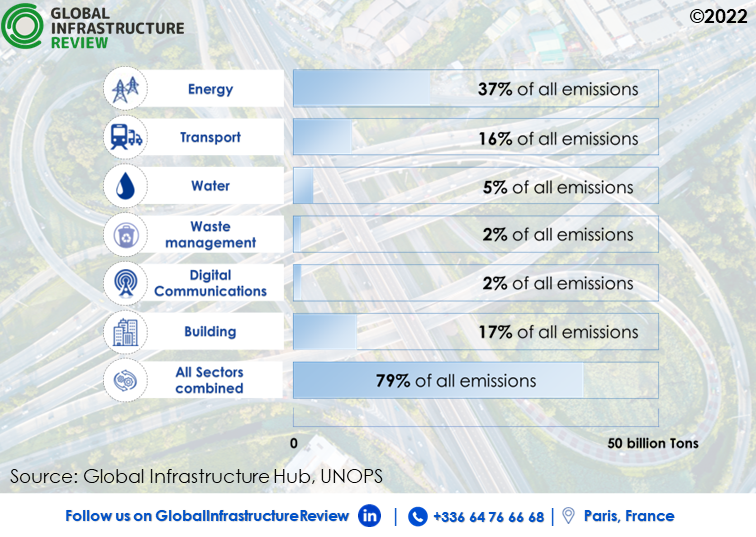Infrastructure plays a vital role in global economic development, serving as the backbone for connecting regions, industries, and markets. Well-designed and constructed infrastructure facilitates the exchange of goods and services, providing essential services such as energy and water supply to households and businesses.
Connective infrastructure, including transportation systems and digital communications, enhances access to services and fosters connectivity among users.
However, amidst growing concerns over climate change, infrastructure emerges as a significant contributor to greenhouse gas emissions. According to a collaborative study by UNOPS, the United Nations Environment Programme (UNEP), and the University of Oxford, infrastructure construction and operation account for 79% of total greenhouse gas emissions, primarily from energy (37%), transport (16%), and the buildings sector (17%).

Furthermore, the digital communication sector, though currently contributing minimally to emissions, is anticipated to play a substantial role in greenhouse gas emissions, particularly in the wake of the COVID-19 pandemic.
While infrastructure remains instrumental in achieving Sustainable Development Goals, addressing climate change becomes imperative. Urgent strategies are needed to integrate energy transition concepts into infrastructure development policies.
This entails designing sustainable and resilient infrastructure and upgrading existing infrastructure to meet modern standards. Collaboration among stakeholders, including contractors, financial institutions, international organizations, and governments, is essential to delivering climate-friendly infrastructure solutions worldwide.